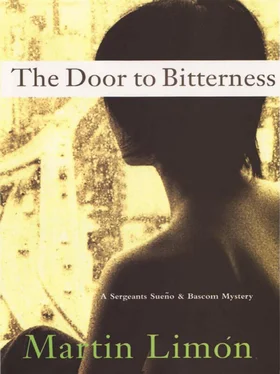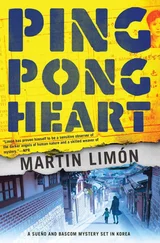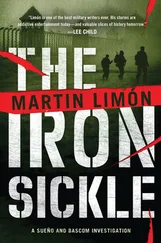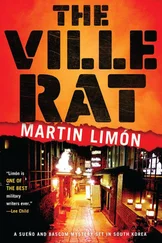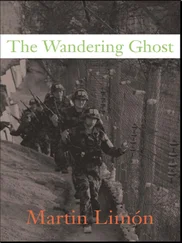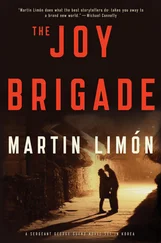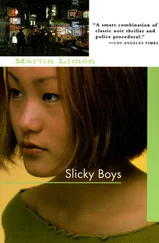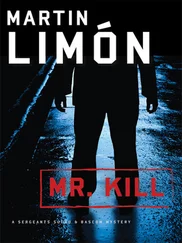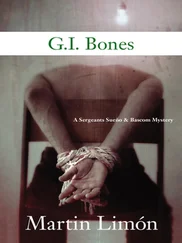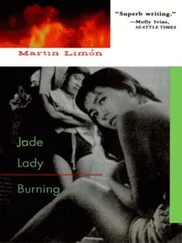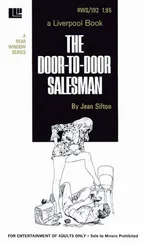Martin Limon - The Door to Bitterness
Здесь есть возможность читать онлайн «Martin Limon - The Door to Bitterness» весь текст электронной книги совершенно бесплатно (целиком полную версию без сокращений). В некоторых случаях можно слушать аудио, скачать через торрент в формате fb2 и присутствует краткое содержание. Жанр: Полицейский детектив, на английском языке. Описание произведения, (предисловие) а так же отзывы посетителей доступны на портале библиотеки ЛибКат.
- Название:The Door to Bitterness
- Автор:
- Жанр:
- Год:неизвестен
- ISBN:нет данных
- Рейтинг книги:4 / 5. Голосов: 1
-
Избранное:Добавить в избранное
- Отзывы:
-
Ваша оценка:
- 80
- 1
- 2
- 3
- 4
- 5
The Door to Bitterness: краткое содержание, описание и аннотация
Предлагаем к чтению аннотацию, описание, краткое содержание или предисловие (зависит от того, что написал сам автор книги «The Door to Bitterness»). Если вы не нашли необходимую информацию о книге — напишите в комментариях, мы постараемся отыскать её.
The Door to Bitterness — читать онлайн бесплатно полную книгу (весь текст) целиком
Ниже представлен текст книги, разбитый по страницам. Система сохранения места последней прочитанной страницы, позволяет с удобством читать онлайн бесплатно книгу «The Door to Bitterness», без необходимости каждый раз заново искать на чём Вы остановились. Поставьте закладку, и сможете в любой момент перейти на страницу, на которой закончили чтение.
Интервал:
Закладка:
And then I was leaning on Ernie and my feet grew numb. Suk-ja was helping. I’m not sure exactly when, but I must’ve collapsed.
Damp cobbles pressed against my cheek. People jerked on my arms, but I couldn’t get up.
I’d been stabbed.
The cut wasn’t deep, and the blade hadn’t hit any vital organs but it hurt like hell nevertheless. The doctor told me it was a slice more than a stab wound. She actually used those words.
“Slice your rib,” she said, pointing at her own rib cage. “Not stab into you lung.”
Her name was Dr. Lim. A bespectacled woman, middle-aged, about the size of your typical twelve-year-old American boy. But the girls at House Number 59, including Suk-ja, bowed whenever she looked at one and backed up in the hallway to make way for her as she passed. They treated her like a visiting potentate. Why? The doc was a savior to the girls in the Yellow House area. Suk-ja told me that she was in charge of the city VD clinic, a clinic that years ago set up business only a few blocks away.
Dr. Lim swabbed my wound with rubbing alcohol, then gave me a tetanus booster and a shot of antibiotic. When I asked her what kind of antibiotic it was, she grew impatient and said, “You be quiet.”
I did. In the Third World doctors are gods. Not to be questioned.
Then she sewed me up. Three stitches. Without anesthetic.
All the while, I lay on the warm vinyl floor of Suk-ja’s room in House Number 59, on a rolled out cotton sleeping mat. Suk-ja, the mama-san, Ernie, and about a half-dozen of the House Number 59 girls looked on, the girls still wearing their flimsy lingerie.
Life is a communal activity in Korea. Everyone believes they have a right to know what’s going on.
Ernie paid Dr. Lim out of his own pocket. After she left, Suk-ja fetched a bottle of Kumbokju brand soju, and she and Ernie and I sat in her room toasting one another, tossing back thimble-sized shots of the fierce rice liquor, talking about the fight, laughing, speculating on who the guy was who got away.
I passed out first.
“You smell like a sewer,” Ernie said.
“You’re not much better.”
The time was oh-dark-thirty. The sun still hadn’t come up, and Ernie and I were winding our way through the walkways of the Yellow House, heading back to House Number 17. Both of us were feeling pretty gamey, what with all the activity of the last twenty-four hours. Now, early in the Inchon morning, unable to perform our morning GI rituals- a shower, shave, and change into clean clothes-we were each becoming more uncomfortable by the minute.
Before we left House Number 59, Suk-ja had done her best to wash me up, bringing a pan of heated water for what Koreans call seisu, scrubbing of the hands and face. But it wasn’t the same as being in the barracks and standing under a luxuriantly hot shower for twenty minutes.
The Koreans consider Americans to be unclean. Most Koreans don’t have much more than one faucet or well outside to provide water for their home, therefore they don’t shower every day. But when they do shower, it’s with a vengeance. At a public bathhouse, they might spend two or three hours, rubbing and grinding and pelting their raw skins until every pore in their bodies is free of grease and grime.
We stood in the dark street in front of House Number 17.
The Greeks were gone. The narrow alley, where one of them had sliced me, was empty and silent. Ernie stepped up to House Number 17 and pounded on the locked door until the mama-san opened up. I explained that we wanted to talk to the girl who’d spent time yesterday with the criminal who’d escaped last night. She agreed but asked for ten more dollars. I turned her down flat. When she complained, I told her that if she preferred, I would call Lieutenant Won of the Korean National Police and she and the girl could both talk to him downtown. That was enough to make the frowning mama-san open the door and let us in. She told us to wait and went upstairs to fetch the girl.
Five minutes later, the frightened young woman knelt on the warm vinyl floor in the front room, dressed in lumpy blue jeans and three layers of upper garments, topped off with a thick wool sweater that she clutched across her chest.
When we’d seen her last night, she’d been naked and screaming, while bullets whizzed past her head.
Her name was Mi-ja, she told me. Beautiful Child. I held out the sketch of the Caucasian man who’d robbed the Olympos Casino.
When she reached for it, her hand shook, as it had last night when she’d attempted to cover her nakedness. Before she grabbed hold of the flimsy construction paper, she closed her eyes and pushed it away.
“Come on, Mi-ja,” Ernie said. “You have to look at it sometime.”
Apparently, Mi-ja didn’t understand. So far, she hadn’t done anything other than kneel before us and bow her head. I spoke soothingly in Korean, asking her to just take a look at the sketch. She kept her face down, and then I realized that she was crying.
I explained that more people would be hurt if she didn’t help us capture this guy.
Without looking up, Mi-ja raised the left sleeve of her sweater. There, in a straight row, red and angry, were half a dozen holes in her flesh. All about the size of the tip of a burning cigarette. She continued to hold out her arm. Nobody spoke. Nobody breathed.
Slowly, I reached out my hand, feeling the ache of the slice in my side, and, as gently as I could, I touched the fingertips of her hand with mine. We lingered like that for a few seconds, flesh on flesh, and then Mi-ja pulled her arm back and rolled down her sleeve.
I held out the sketch again. This time she took it, sat it in her lap. While she studied it, fat tears splashed against the deft pencil lines. Finally, she handed the sketch back to me. Then she nodded.
It was him.
When she finally started to talk, she told me everything.
Hundreds of commuters, maybe thousands, stood in orderly lines along the cement passenger platform next to the tracks of the Inchon Main Train Station. They were silent, barely shuffling their feet. Occasionally someone coughed.
The cut in my side didn’t hurt much. Actually, my head hurt more, and my stomach still roiled from last night’s soju.
Another blast of cold, salted mist rolled in from the Yellow Sea. Then a buzzer sounded, and the tracks rumbled, and a few seconds later a train rolled up, brightly lit inside. It stopped, two dozen doors slid open, and the people standing on the platform rushed in, spreading themselves quickly over the seats and benches.
“Seems like the whole damn city works in Seoul,” Ernie said.
I braced myself against a metal railing, supporting about half my weight with my arm, trying to keep the pressure off the slice below my armpit.
6
“Any Miguks?” I asked.
“Not that I could see.”
Ernie had just returned from a stroll down the loading ramp, reconnoitering the crowd. But in the dim morning light and with so many people, it was difficult. The Korean National Police were out in force. Lieutenant Won figured that the Caucasian fugitive who’d gotten away from us last night might use the morning rush hour of workers commuting to Seoul to escape from Inchon. The roadblocks had been called off. The KNPs had decided it was too disruptive to keep them on this morning. Our only chance was to get very lucky here at the train station. So far, luck didn’t seem to be going our way.
In an hour, the rush hour had subsided. I bought a copy of the Korea Herald, an English language daily. Miss Han Ok-hi, the young casino worker who’d been shot, was still in critical condition, according to the report.
Before we reached the train station, Ernie and I flashed the sketches of the two thieves and the smiling woman to all the vendors who sold newspapers and dried cuttlefish and warm barley tea outside on the street in front of the station. None recognized anyone in the sketches, and all claimed to have been asked the same questions by the Korean National Police yesterday. But our persistence paid off.
Читать дальшеИнтервал:
Закладка:
Похожие книги на «The Door to Bitterness»
Представляем Вашему вниманию похожие книги на «The Door to Bitterness» списком для выбора. Мы отобрали схожую по названию и смыслу литературу в надежде предоставить читателям больше вариантов отыскать новые, интересные, ещё непрочитанные произведения.
Обсуждение, отзывы о книге «The Door to Bitterness» и просто собственные мнения читателей. Оставьте ваши комментарии, напишите, что Вы думаете о произведении, его смысле или главных героях. Укажите что конкретно понравилось, а что нет, и почему Вы так считаете.
